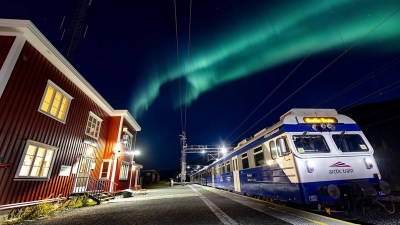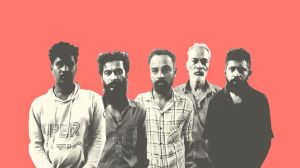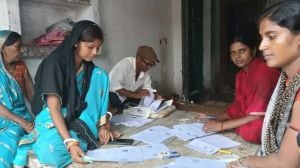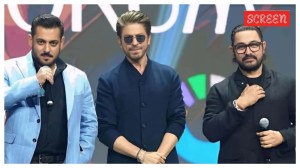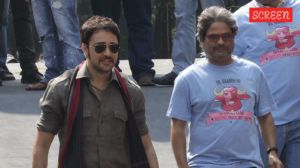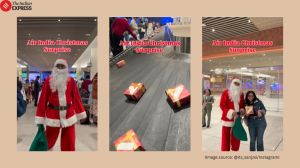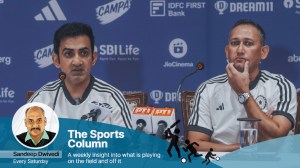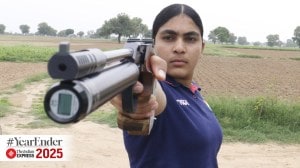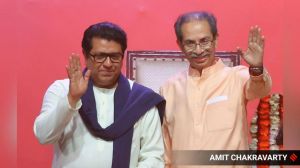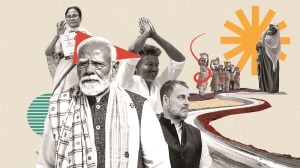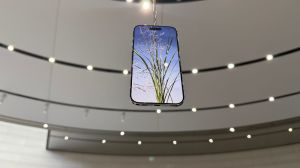Dateline Kandahar
DECEMBER 30: Supposing it was an American airliner with American passengersthat had been hijacked from Kathmandu to Kandahar via Amritsar,...

DECEMBER 30: Supposing it was an American airliner with American passengersthat had been hijacked from Kathmandu to Kandahar via Amritsar, Lahore andDubai, what sort of media coverage would we have had? Talking headsspeculating on the basis of zero facts, day after day, ad nauseum?
Within hours of the first news of the hijack, the CNN headquarters inAtlanta, Georgia, to give just one example would have asked the CNNbureaus in New York and Washington to establish instant contact with thegovernments of the relevant countries which figure in this hijacksequence.
This initial contact would have been for information, of course, but muchmore important, for clearance and logistical support that the variousreporters and camera crews would require.
The CNN management would have been busy arranging for passage, hotelaccommodation, and local transport. Satindra Bindra, the CNN bureau chief inNew Delhi, would have been lobbying with the Oberoi Intercontinental to haveone floor vacated for Christiane Amanpour, the principal foreigncorrespondent, and her supporting staff 8211; pr-oducers and their assistants,script writers, sound engineers, make-up men, ca- meramen.
The Oberoi would have be-en the base camp from where subsidiary crews andcorrespondents would have fanned out to Kathmandu, Amritsar, Lahore,Islamabad, Kandahar and ev-en Kabul. Yes, International Red Cross, UNHCR andother international bodies would have been contacted in Geneva and New Yorkto make room for one cameraman and a reporter in one of the special planesheaded for Kandahar.
Visuals of the aircraft, diagrams of the Kathmandu airport, details likefive tickets in one name, would have been available the very evening theaircraft was diverted. By the second and the third day, a comprehensivepicture would have been available as to how the hijack looked from thevarious countries the aircraft had touched.
Comparisons would have been dr-awn with other hijacks in history. Here theCNN would have had to buy fo-otage from ABC or CBS who were the principalnetworks covering the TWA 727 Athens-Rome flight with 153 Am-ericantourists, hijacked to Beirut on 14 June 1985. There was no CNN or BBC worldservice TV around in those days. The only functioning hotel, I remember, wasthe Commodore in Al Hamra.
That hijack had been organised by three Leba-nese Shia extremists demandingthe release of 750 Lebanese and Palestinian prisoners in Israeli jails.Speaker of Iranian Parliament Hashemi Ra-fsanjani visited Hafez Assad inSyria. After ten days, Israel released 10 Labanese Shiites. But Syrianintervention led to the release of all the hostages on June 30.
It was impossible to find taxis in Be-irut because every moving vehicle hadbeen commandeered by CBS, NBC and ABC. Each one of the networks had its ownsmall aircraft and helicopters parked at Beirut airport. The day8217;s footagewas flown to Larnaca in Cyprus, twenty minutes away, from wh-ere the footagewas beamed to the respective channels in New York. This routine wassustained for all the seventeen days that the hijack lasted.
So fierce was the competition bet-ween the networks that eventually it wasthe ABC which, using its access to Nab-ih Beri, the Shiite leader of theAmal party, had all the hostages attend a banquet hosted by the channel in asmall French hotel immediately upon their release on June 30. This was thenetwork8217;s great scoop.
This was cheque-book journalism, but there were other occasions. I wa-tchedthe western media as partners in all foreign policy expeditions. It was notpatronage that the state extended to the media: it was partnership asbetween equals.
An early example of this partnership8217; could well be the New York Ti-mescolumnist James Reston8217;s visit to China, photographs of him lying withacupuncture needles all over his body, preparing public opinion for Nixon8217;sChina visit.
But this partnership reached its peak during the Gulf War. When US DefenceSecr-etary Dick Cheney was asked if air-strik-es were proceedingsatisfactorily, he responded, quot;Yes, I have seen it on CNN quot;.
The Gulf War ended in March 1992. In April 1992, BBC World Service TV wasborn to be in the vanguard of the post-cold war world order. Our media mustgrasp this cardinal fact.
CNN and BBC are excellent sou-rces of news and information, but anyself-respecting nation and that nation8217;s media must remember that the agendafor that which has to be covered will be set in London and Atlanta. In thisfr-amework, the Queen8217;s Christmas message will be accorded higher prioritythan the Indian President8217;s Independence Day message; President Clinton witha posse of American troops in Kosovo will be beamed across the world whichshall remain oblivious of all the excellent work done by Indianpeace-keeping troops in Somalia, Angola, Bosnia and Kosovo. I can cite ahundred such examples.
Also, Christiane Amanpour will be flown in with all the paraphernalia whenterrorism strikes American or western targets. Our tragedy, I am afraid,will not be covered with the same involvement that we would have in such astory.
One of the great advantages we derived from Kargil was the manner in whichtransborder terrorism was exposed globally. Since then there have been aseries of arrangements we have forged with numerous countries againstterrorism. Recently, the External Affairs Minister attended a summit inKa-zakhstan against global terrorism. Every country, including the US,Russia and China, attended the summit.
Surely some footage of this summit could have relieved the tedium of havingtalking heads discuss the Indian Airlines hijack. Likewise, we are embarkedon forging an anti-terrorism partnership with the United States. Do ournetwo-rks have access to officers like Michael Sheehan in the US? If not,possibly a crew could visit Washington for interviews with terrorismexperts.
There is a direct flight to Dushambe, capital of Tajikstan. Our ambassadorin Moscow could have provided us contacts with Russian troops protecting theTajik-Afghan border. This would have given us access to Ahmad Shah Masoodwho would have provided priceless insights into the whole episode.What our media must learn from this hijack is this: in the new world, weshall have to cover events that are of interest to us. Other sources ofinformati-on like the BBC and CNN are excellent but they do not look at theworld from an Indian perspective. Only we can.
- 01
- 02
- 03
- 04
- 05


